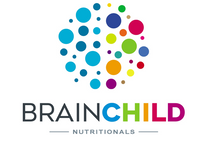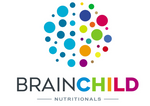How Do Food Allergies Develop?
Do you or a loved one suffer from food allergies? Food allergies develop when the immune system reacts to a food and then creates an antibody that is specific to that food. When you eat that food again, your body releases histamine and other chemicals in the body to fight it off. This results in allergic reactions like rash, stomach cramps, gas, bloating, vomiting and diarrhea. Let's learn more about food allergies and what you can do when they develop.

Food allergies 101
Food allergies develop in the body when proteins from certain foods are eaten. The body’s immune system, which normally fights infections and germs, protects you by identifying a specific protein in the food as a threat.
The immune system produces an antibody that is specific to that protein—like a lock and key. When the same protein shows up in the body again, the immune system identifies it and attacks.
The antibodies are called Immunoglobulin E (IgE) antibodies because they are part of the Immune System's IgE branch. These specific 'locks' will bind to just that protein in any food that contains it.
Some research shows that autism may be linked to food allergies. If autism is not properly diagnosed or treated, food allergies can develop in children with autism that will lead to allergic reactions.

What are the symptoms of food allergies?
Symptoms of an allergic reaction usually appear quickly after eating certain foods. They may include:
- stomach pain
- diarrhea
- vomiting
- nausea
- gas
- bloating
- hives
- itchy, watery eyes
- sneezing
- wheezing or difficulty breathing
How are food allergies diagnosed? Doctors diagnose food allergies by doing tests that measure the body’s immune response to different foods.

Autism and food allergies
Some people with autism suffer from gluten and casein (milk protein) intolerance or allergies. Gluten is a protein found in wheat and other grains such as barley and rye. Casein is found in milk products such as cheese and yogurt. People who have autism can also suffer from coeliac disease which is an autoimmune disorder that prevents you from absorbing nutrients properly when you eat gluten or dairy products following diagnosis with autism spectrum disorders (ASD).
Testing for coeliac disease can be done through blood or stool testing. In addition, the autism-linked digestive disorder known as autism ileo-colonic lymphoid nodular hyperplasia (ICLNH) is treatable with a gluten-free diet. The autism ileo-colonic lymphoid nodular hyperplasia (ICLNH) autism spectrum disorder is very difficult to diagnose because it only manifests itself in autism sufferers who have this intolerance or allergy to gluten and casein.

Dietary changes to help treat symptoms
Talk to your doctor about which foods to avoid. Depending on whether you or your child have a milk allergy, wheat allergy, etc., avoiding the food will help treat your child’s symptoms.
The autism diet is often based on the Gluten-free casein free diet which removes these two proteins from the child's diet. Across many studies, there is evidence that autism sufferers have negative reactions to gluten and casein proteins in their diets that lead to autism spectrum disorder (ASD).
An autism diet should be combined with a treatment program that includes supplements to heal the damage done to the gut and support digestion. Intestimend is our revolutionary intestinal repair formula, which provides support for healthy intestinal mucosa and gastrointestinal function. It's an innovative detoxification formula, supports glutathione production, healthy sulfation and methylation. It also can help with food allergy reactions, including casein and gluten.
Tips for parents of children with autism and food allergies
As the parent of a child with autism, it's important to be aware that your child might have a food intolerance or allergy. This is because autism might affect the way the immune system works which can make your child more vulnerable to these types of reactions.
There are few things you can do to help manage the effects of autism on the digestive system and any resulting food intolerance or allergy. As mentioned above, the first step is to talk to your doctor about which foods to avoid and have any necessary tests done. Depending on whether you or your child have a milk allergy, wheat allergy, etc., avoiding the food will help treat your child’s symptoms. Secondly, dietary supplements can help with food allergy reactions. Intestimend is one such supplement that provides autism sufferers with the support they need to heal from autism and digest foods properly.






